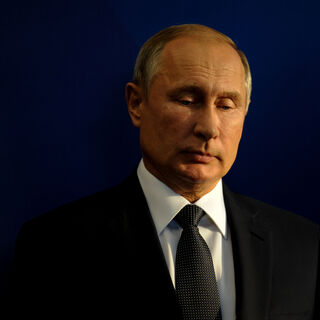Sesgo
El sesgo cognitivo que podría provocar una guerra nuclear
Existe el peligro de pensar que sabemos lo que es impensable para otra persona.
15 de marzo de 2022 Revisado por Tyler Woods
Los puntos clave
- El sesgo de la imagen reflejo es un error de juicio que nos hace suponer que los demás piensan como nosotros.
- A los analistas de inteligencia se les enseña a ser conscientes de este sesgo al evaluar las intenciones de líderes como Putin.
- Los líderes occidentales pueden estar mostrando este sesgo al no tomar en serio las amenazas de guerra nuclear de Putin.
- Si Occidente humilla a Rusia, Putin podría perder la vida, convirtiendo la guerra nuclear, a la que sobreviviría en un búnker, en una opción.

Intelligence officers, particularly analysts who prepare reports and assessments, are taught that one of the greatest hazards they face comes not from external actors, such as the “bad guys” that they target, but from themselves.
In the “bible” of intelligence analysis, The Psychology of Intelligence Analysis by Richards Heurer, analysts-in-training learn how judgment errors that we all make in everyday life can lead them— unconsciously— to make grave mistakes in assessing the capabilities and intentions of adversaries, such as the Russians.
One such judgment error is called Mirror Image Bias, where we assess motives underlying the behavior of another person based on our own experiences, beliefs, motivations, and values.
An example of "mirroring" in the current Ukraine crisis would be for us to assume that Putin is just bluffing when he threatens nuclear war over any Western interference with Russia’s war effort.
Surely, we say to ourselves, Putin knows that attacking the West with a nuclear first strike will lead to total, or near-total annihilation of his own country, Therefore, we reason, his recent threat is just that, an empty threat.
Let’s put aside, for the moment, the fact that Russia, with a far more robust civil defense system than ours, together with nuclear survivable communications and electronics systems, is far better prepared for an all-out nuclear war than we are.
And let’s also put aside the notion that Russia believes it enjoys the advantage of single-minded purpose, while its enemy, NATO, is an alliance made up of 30 different countries, each of which must consult each other before doing anything, potentially delaying an effective response to a Russian nuclear first strike.
Instead let's boil it all down to the personal survival motivations of one person, Vladimir Vladimirovich Putin. In the past, Putin even told then-Vice President Biden that it's wrong to assume the two men think the same way.1
Whereas the worst that will happen to an American president who loses or gets bogged down in a costly war is that they will lose political office, the worst that could happen to Putin if Russia falters is that he could lose his life. Witness the ten or so Kremlin political opponents who have been murdered or, like Putin opponent Alexei Navalny, poisoned with nerve gas.
Thus, if Putin faced a choice of backing down in Ukraine or launching a first-strike nuclear attack against NATO, his odds of personally surviving might actually be higher, hunkering down in a nuclear-proof bunker in the Ural mountains or deep below the Kremlin, than they would be if his actions humiliated Russia and enraged the Russian Siloviki (strong men) who keep Putin in power.
Don’t assume, just because we believe an all-out nuclear war is un-winnable, that the Kremlin agrees. Yes, nuclear war would sacrifice an enormous portion of the Russian population, but Russia lost about 15 percent of its population in World War II and emerged victorious and in a far stronger position (by controlling all of Eastern Europe) than before the war.
In other words, Putin might believe, with some justification, that a nuclear war might severely wound Russia but would absolutely destroy the West.
A few days ago, George Beebe, a former head of Russia analysis and my boss at CIA, answered my question about Putin’s world-view, observing, "I believe that Putin thinks this battle is existential for both Russia and him, personally."
In a National Interest article titled "Raging Towards the Abyss With Russia,"2 Beebe argues that, if we want to prevent a nuclear war, we need to find a creative way out of the current crisis that allows Putin to save face if the war in Ukraine goes badly for him. Such a face-saving idea pulled us back from the brink of nuclear war in 1962, when the U.S. pledged to remove nuclear missiles from Turkey and Italy and to never attack Cuba, in return for Russia removing their nuclear-armed missiles from Cuba.
Beebe goes on to say that our current strategy of thwarting Russian aims in Ukraine while “asphyxiating” their economy may succeed in humiliating Russia, but that, backed into a corner, Putin’s risk calculus could lead him to conclude that nuclear first strike is his only option.
Yes, Russian aggression in Ukraine is reprehensible, and yes, World War II taught us the futility of trying to appease amoral dictators, but the survival of the world, literally, could depend upon us quickly finding, then navigating the narrow path between appeasement and catastrophic confrontation.
A version of this article originally appeared in English.



